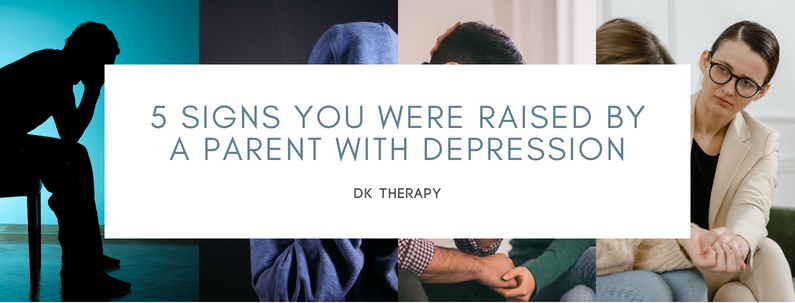
Depression comes in many forms and is one of the most common mood disorders in the world. Most often characterized by feeling sad and a general loss of interest, depression itself can go away with time and care. However, people with chronic depressive disorders like major depression or seasonal depressive disorder will go through several of these depressive slumps in their lifetime. Since depression can be hard to diagnose later on in life, there are tons of adults living with depressive disorders that don’t even realize it.
How does Depression Manifest?
Depression, primarily chronic depressive disorders like major depression, shows itself in a number of ways aside from just “feeling sad and listless.” Common symptoms of depression often include general feelings of hopelessness, guilt, restlessness, and anger. Someone going through a depressive period may experience mood swings and may seem angrier than usual. Exhaustion and a general lack of energy is also a major sign of depression, as is difficulty remembering things, making decisions, falling asleep, waking up, and eating regularly. People experiencing depressive episodes may also experience chronic aches and pains.
Of course, the most significant sign that something is wrong is thoughts of self-harm, death, or suicide.
The Big Signs
The five biggest signs that you were raised by a parent with undiagnosed depression may not fully be accurate to your life experiences, nor do they all associate with depression in general. Chronic pain, physical disability, and anxiety disorders can also play a role in your development. If you associate with any of these signs, do not immediately assume that your parent has a depressive disorder. Instead, ask them if they are okay if it is safe to do so.
It’s also important to note that most studies regarding parental depression have involved mothers, and there is significantly less information about how depression affects fathers.
Use of Negative Parenting Techniques
Negative parenting techniques include physical and emotional abuse, as well as general neglect and over-attentiveness. Think of parenting as a spectrum: a helicopter parent overly involved in their child’s life may be a sign that something is wrong, just as a parent who frequently neglects their child may be going through something difficult.
2. A Lack of “Warmth”
 A lot of people with depression say that they feel like they’re “going through the motions.” For parents, this may translate to a lack of interest or affection towards their child. Separate from neglect, a general lack of interest in daily life and things (or people) you love is a common symptom of a depressive episode.
A lot of people with depression say that they feel like they’re “going through the motions.” For parents, this may translate to a lack of interest or affection towards their child. Separate from neglect, a general lack of interest in daily life and things (or people) you love is a common symptom of a depressive episode.
3. Periods of Tardiness
If you were the kid who would miss events and even school often because your parent couldn’t make it out of bed on time (or they kept forgetting), you might have grown up with a depressed parent. As mentioned in the previous point, lack of interest, coupled with chronic pain and fatigue, can make people going through depressive episodes have difficulty with timeliness.
4. Frequent Illness/Poor Healthcare Patterns
Yet another sign related to the listless and disinterested feelings associated with depression is how a parent’s ability to take their kids to the doctor when they feel unwell changes. Children with depressed parents are more likely to visit acute healthcare services. As children grow older, this may also manifest in their usage of primary care resources.
5. You Also Have Depression
Depression, anxiety, and other mood disorders often develop over time through life experiences. As children, a lot of how we see the world is shaped by our parents’ views, and a parent with depression views the world differently than one without. Based on the difference in worldview or how you were raised by your parents, you may also develop psychological disorders that affect your mood. In some cases, however, depression is hereditary, too, and can be passed down from different generations.
Does this Apply to All Parents with Depression?
While these signs are significant tells that something may be wrong, not all parents with depression show all of these signs, if any at all. While mental health disorders can be hereditary, a parent with depression may have been diagnosed earlier in their lifetime and was able to learn the skills they need to move forward through depressive episodes. Other times, parents have learned to cope with themselves and may see nothing wrong with their thought patterns. Ultimately, approaching your parents about your mental health (and theirs, if you’re concerned) is essential to keeping a healthy relationship with them.
The Bottom Line
Depression often goes undiagnosed in adults simply because there isn’t enough time to do so. However, this doesn’t mean that people don’t need help. If you or a loved one is struggling with depression and experiencing thoughts of suicide or self-harm, please call the National Suicide and Crisis Lifeline at 988.
If you or someone you care about would like to speak to a licensed therapist about depression or any other mental issue, reach out to our therapists in downtown Chicago today here.




